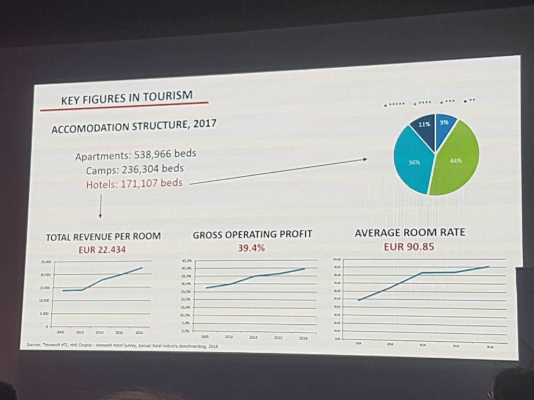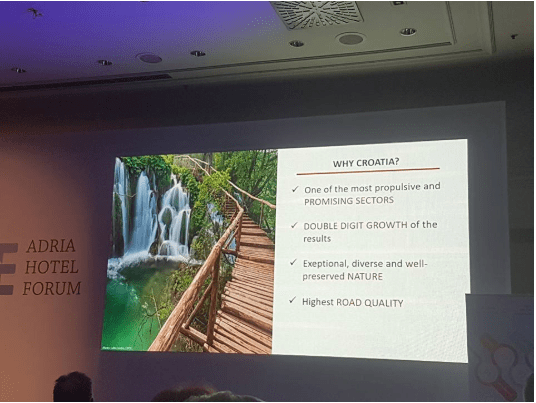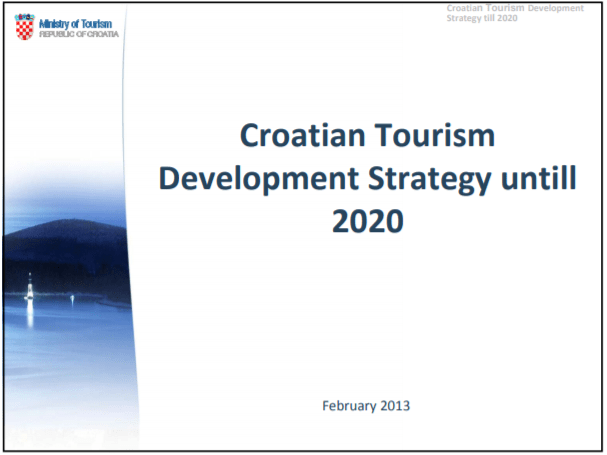The 2nd Adriatic Health Tourism Investment Forum concluded in Zagreb on October 12, 2018 - a thought-provoking event on many levels for this long-term resident of Croatia.
I must confess that I am finding life rather fascinating at the moment on a professional level.
What started out as a blog about a Dalmatian island with a beer and a laptop in Jelsa seven years ago this week, has mushroomed into various Total websites, including Google News portals in Croatia, Montenegro and Slovenia.
And just as the business grows and expands geographically, so too does my understanding of this hopelessly addictive and completely f*cked up region. It feels at times that local friends are watching me discover the latest Balkan reality, then smiling when I figure it out, then they wait until I figure out the next stage. I feel at times I am playing some kind of computer game called The Beautiful Croatia, moving onto the next level of understanding.
You have to understand my blogging origins. Writing happy tourism stories about the island of Hvar brought lots of clicks and lots of happy comments. Immersed in the tourist bubble of living on an idyllic Dalmatian island gives you a very distorted view of the realities.

And then I discovered the world of Uhljebistan, and life in Croatia was no longer the same. A Tale of Two Croatias: Before and After the Uhljeb Discovery got a lot of attention, but the thing that stayed with me the most was the number of locals who opened up to me now that I had learned about the 'uhljeb' world. It was almost as if I had entered a secret world as a foreigner.
Moving from the happy world of Total Hvar to the murky world of Total Croatia News, a national portal dealing in the realities of day to day news was not only a culture shock, but it also sucked the life out of me (and continues to do so). What happened to that perfect Croatia I had stumbled across one balmy August day way back in 2002? My days were filled with stories of corruption, abuse of power, failed investments, the crushing of the little man while the big guys acted with impunity. I can't deny it wasn't interesting, but I did start taking more showers.
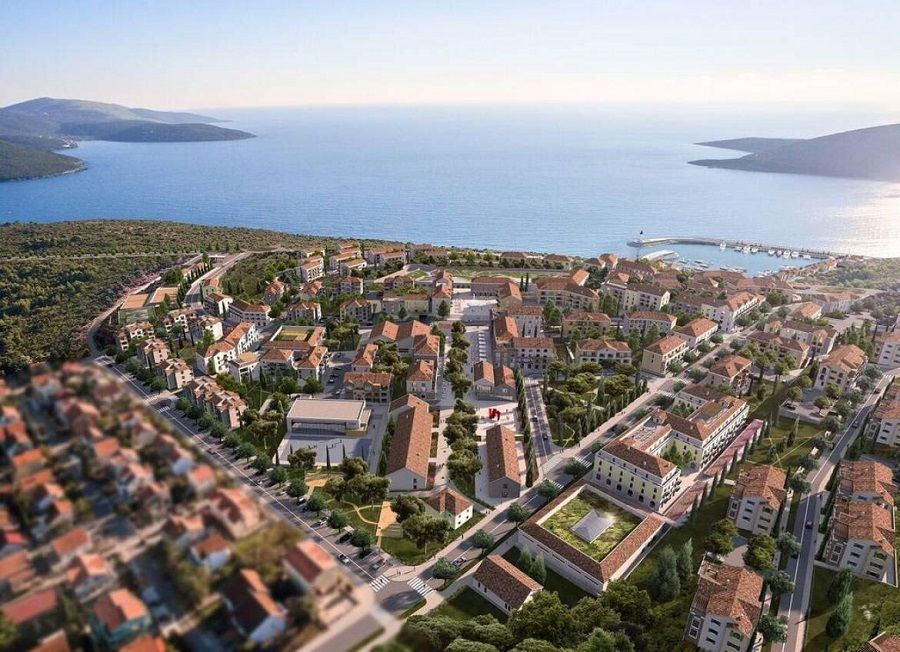
(Part of the planned 1.1 billion euro development of Lustica Bay in Montenegro)
This is the Balkans I thought, this is just how it is. Why are there so few foreign investments here? Because they like ripping off the investors. The country is controlled by a small minority, and they make up all the rules. It must be a post-Yugoslav thing.
I went to Montenegro in February of this year, not having expectations that it would be much different than Croatia, but to look at the possibilities of a Total Montenegro News portal down there. I was expecting it to be less developed, more corrupt and a lot slower than Croatia, and while some of those preconceptions were shown to be true, I was astonished at how much further ahead Montenegro (a much smaller country) was in attracting foreign investment. I genuinely thought it impossible that a project like Lustica Bay could happen in this region. Lessons from Montenegro: Why Lustica Bay Will Never Happen in Croatia. It was probably one of the most important articles I have written for TCN, and it generated plenty of reaction in both countries from people of influence, right up to the ministerial level in both cases.
Of course, the expected Croatian reaction (for we have long ago pondered the question Is a Foreigner Allowed to Have an Opinion in Croatia?) was confrontational rather than acknowledging that there might be a problem on the Croatian side. Of course, foreigners can do that in Montenegro - they put some money in a pocket and off you go. As though this practice doesn't happen in Croatia, but without any results for the investor... A Russian billionaire explained it best to a friend of mine recently.
"The difference between investing in Croatia and the rest of the region is that you pay the politician here and nothing happens, and then you have to start again four years later."
I think that if I had not met a number of inspiring private entrepreneurs since moving closer to Zagreb, I may well have given up on Croatia entirely. Watching the level of incompetence and lack of accountability of Croatian officials is pretty soul-destroying when you are trying to be positive about the possibilities for the country they care so little about. But this energy of young private entrepreneurs, both here and in the diaspora, has shown me one more level of the understanding of this stunning but complex country.
Going to investor conferences is not usually my thing, but I have found that it is the best way to meet a number of people at the same time, and so they are an increasing presence in my monthly calendar. The Adria Hotel Forum back in March was a real eye-opener for me. Fresh from my Lustica Bay experience, I had the opportunity to watch official agencies from Croatia and Montenegro present their country's investment credentials. My jaw hit the floor within seconds of the Croatian presentation. Not only could they not even spell the word 'accommodation' correctly - this at an international hotel investment conference! - but there was absolutely nothing of substance in the presentation whatsoever.
Above the all-important slide - Why Croatia? Apart from a discussion on a rather unusual use of the word 'propulsive' is anyone else excited about the prospect of investing in Croatia?
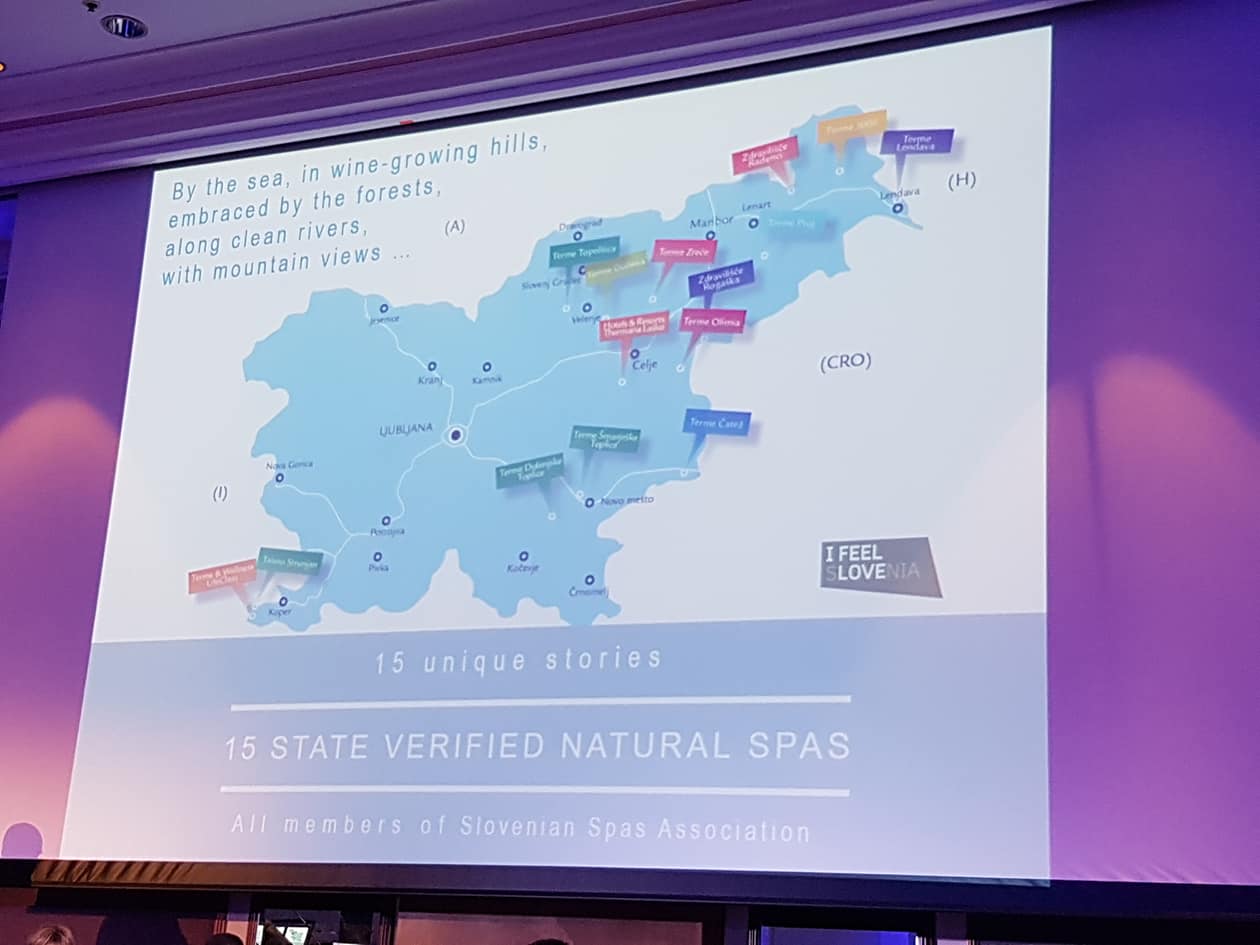
And then I saw Slovenia present at this week's forum. I was in love from the first slide. My knowledge of Slovenia is limited, but all my interactions with them - including their superb tourism fair stand, I feel sLOVEnia - have been serious, professional and focused on business and moving things forward, in stark contrast with what I have come across in Croatia. The Chamber of Commerce is a case in point. The Croatian Chamber of Economy is a much-ridiculed organisation in Croatia. Membership is compulsory for every business in the country, and I think the monthly contribution for a small fry like me is 42 kuna a month, much more for bigger corporations. I have yet to meet anyone who has benefited from the membership, and the forced monthly contributions are very unpopular.
When I went to meet the Slovenian Chamber of Commerce earlier this year to talk about potential cooperation for our Total Slovenia News portal, I was shocked to learn that not only were they open to working with us, but that it had to be on the basis of profit. For the Chamber of Commerce in Ljubljana is run very differently. Membership is voluntary, and they have a very impressive 60% of businesses as members, as they see the proactive nature of activities and clear benefits. Yes, Slovenia escaped the war, and yes it has traditionally been closer to Austria in mentality, but as with Montenegro and Lustica Bay, others were doing it differently than Croatia.
I had reached another level in my computer game of understanding the Balkans. It is not the former Yugoslavia, it is Croatia.
I have written previously about one of my favourite documents in Croatia - the Ministry of Tourism Tourism Strategy 2013 - 2020. Apart from the fact that reader (and investor) confidence might be higher if the ministry could spell correctly all the five words in the document title (see above), the document serves as a wonderful showpiece of how out of touch official Croatia is with reality.
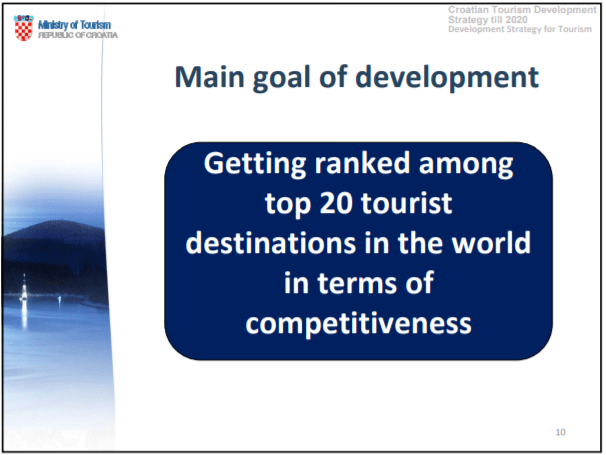
I have had a lot of fun trying to get progress reports from the ministry PR department this year. One of my favourite aspects of the success of this strategy so far surrounds golf. The strategy envisages the construction of no less than 30 golf courses by 2020, a very impressive number for a country which has just three. Indeed, only one golf course has been built this century in Croatia. As of October 12, 2018, two years before the end of the 2020 strategy, not one of the 30 golf courses is underway.
But there can be no denying the main aim of the 7-year plan back in 2013. It is stated very boldly in the document (see above). Getting into the top 20 tourist destinations in the world in terms of competitiveness. At the start of the strategy, back in 2013, Croatia ranked 33rd in the world in the Travel and Tourism Competitiveness Index, and Greece was 31st.
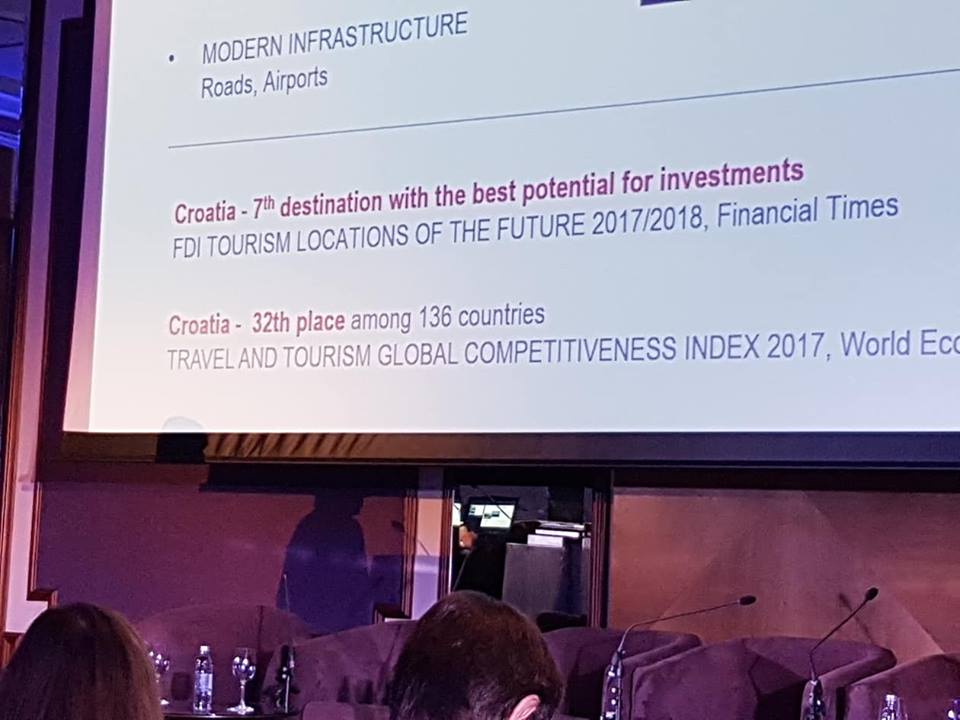
The Agency for Investment and Competition (AIK Invest) gave us an update at this week's conference - here was Croatia ranked just one place higher after 5 years of strategy. That is the progress report of Croatia's main strategic goal after five years of effort.
Greece, which hasn't been trying at all, is up 7 places to 24.
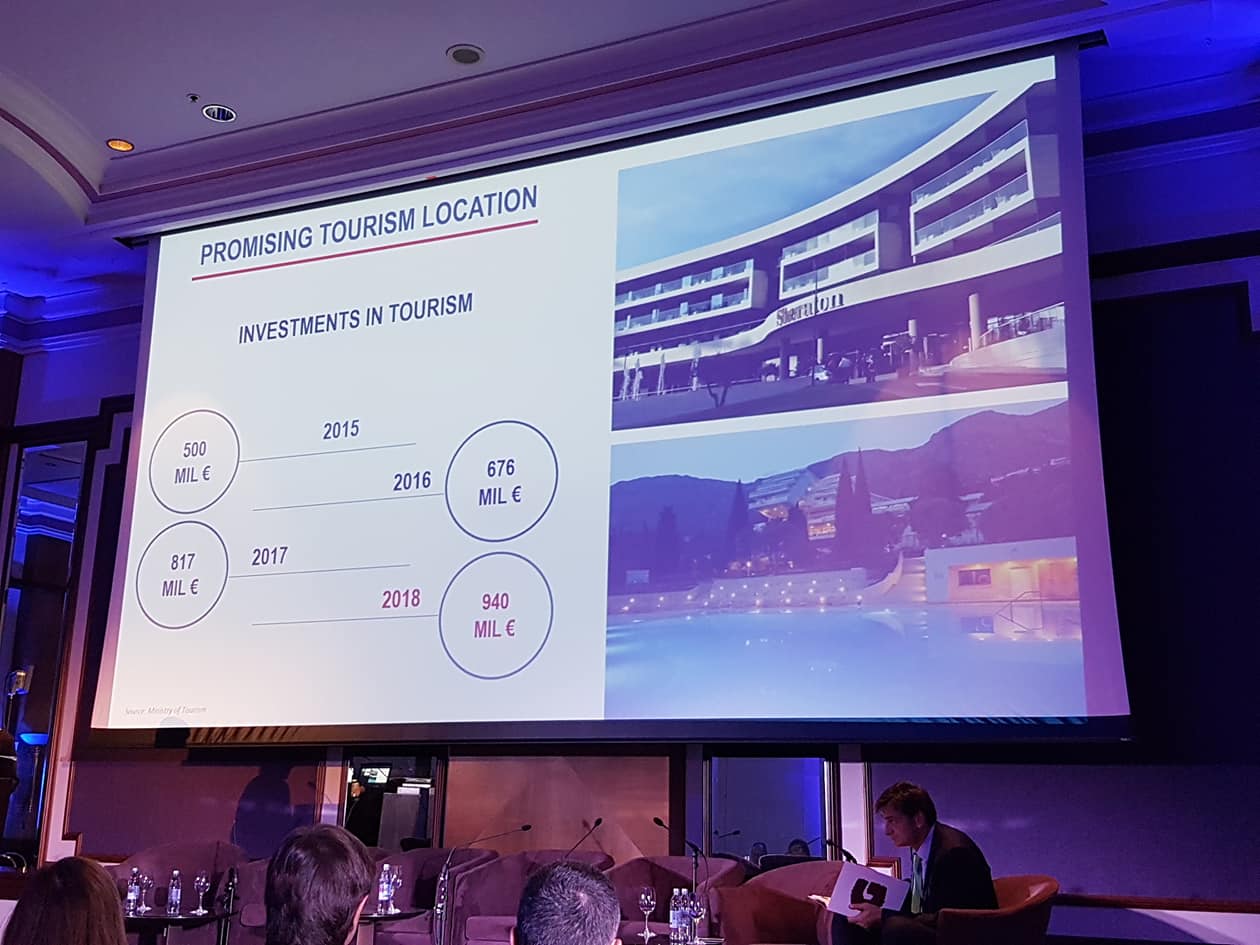
The meaningless numbers kept coming. Back in March, I saw this slide for the first time at the hotel conference. I was intrigued to learn that Croatia was investing 940 million euro in tourism in 2018. Where exactly, I asked? Almost a third of the money being invested was in two projects - Brizenica Bay Four Seasons on Hvar and Hotel Belvedere in Dubrovnik - a total of 300 million euro. No construction work had started back in March, no construction work has started by October 12, or will in 2018. And yet those 300 million sit nicely in Croatia's investment portfolio.
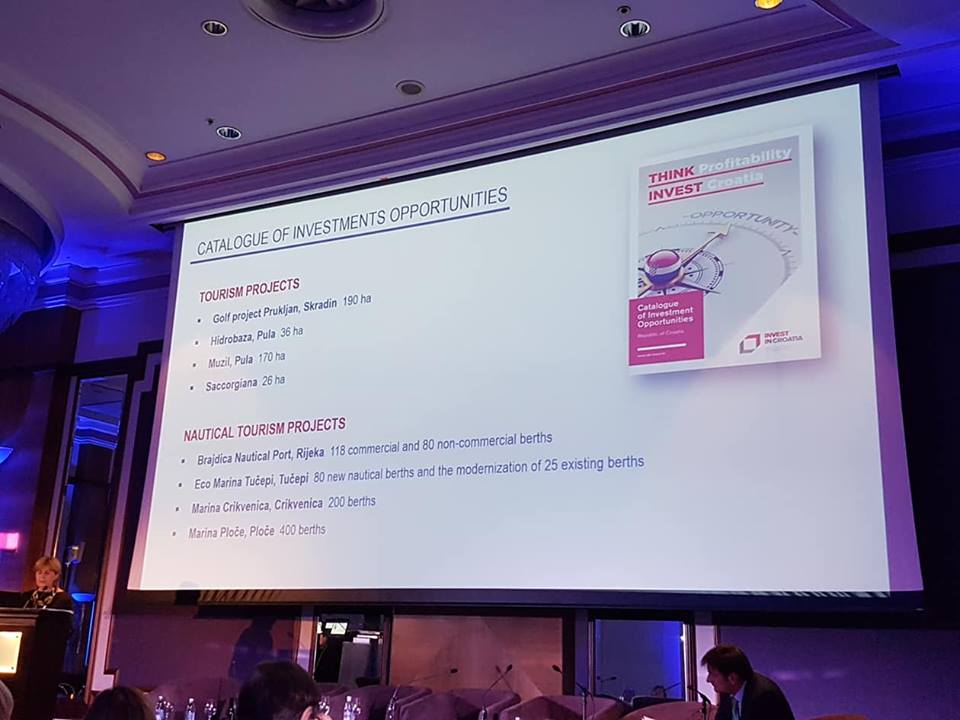
I was curious to see what investments the official Croatian agency would offer these international investors, and I had to smile when the list came out. Number one - a golf project.
Croatia, the great golfing destination with a track record of successful golf course projects which would give total reassurance to the foreign investors. After all, five years into the official strategic plan to build 30 golf courses has yet to start a single one. Not only that but the State is now facing a 500 million euro lawsuit by an Israeli golf investor in Dubrovnik. And there can be few bigger names in golf than Jack Nicklaus. A potential investor would assume that if the Golden Bear met with the Croatian Prime Minister over a decade ago and they both announced a 200 million euro golf resort, they may have at least a building permit by now.
"There were no finished prepared projects," Professor Miljenko Bura, organiser of the Adriatic Health Tourism Investment Forum, told me. "You only get one chance with an investor, and if everything is not prepared, if the project is ready to go, you lose that investor forever. Slovenia has done a great job with EU funds, but there is no initiative from our State officials, just declarations of support. This is why we started this conference, to bring investors to see real projects, mostly from the private sector but also some from the State."
It is an aspect of Croatia I am learning a lot about in this, my latest computer game level in the understanding of The Beautiful Croatia. State institutions with no interest or knowledge (often both) in how to move this country forward, an increasingly frustrated private sector taking things into their own hands and attracting its own investments and finding its own projects. There is an incredible energy and positivity among these entrepreneurs, and it gives me hope for this country.
The Adriatic Health and Tourism Investment Forum is a great step in that direction. Learn more about it here. And the message to foreign investors is... there is hope, but find the right projects and partners such as this forum.
If only we could get the official bodies to engage or step aside...

